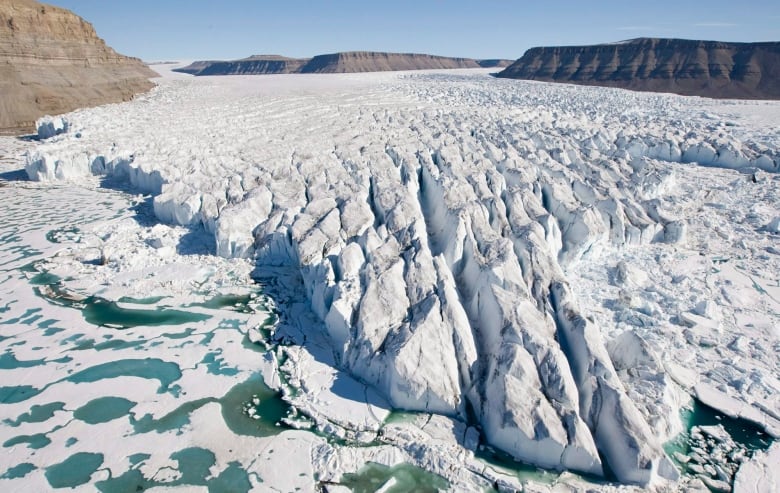Shrinking Glaciers' Acceleration
"Over thirty years suddenly almost all regions [of the globe] started losing mass at the same time. That's clearly climate change if you look at the global picture."
"In these regions, at the current glacier loss rate, the glaciers will not survive the century."
"By combining these two measurement methods [geodetic satellite measurements and the comprehensive database compiled by the World Glacier Monitoring Service from its worldwide network of observers] and having the new comprehensive dataset, we can estimate how much ice has been lost each year in all mountain regions since the 1960s."
"The glaciological measurements made in the field provide the annual fluctuations, while the satellite data allows us to determine overall ice loss over several years or decades."
"Globally, we lose about three times the ice volume stored in the entirety of the European Alps - every single year!"
Michael Zemp, director, World Glacier Monitoring Service, University of Zurich
"[This study] is telling us there's much more to the story."
"The influence of glaciers on sea level is bigger than we thought."
Mark Serreze, director, National Snow and Ice Data Center, Boulder, Colorado
 |
| A giant glacier is seen making its way to the waters of Croaker Bay on Devon Island. The new study used ground and satellite measurements to look at 19,000 glaciers, far more than previous studies. (Jonathan Hayward/Canadian Press) |
The world's glaciers, according to a new study measuring glaciers worldwide, are shrinking five times faster at the present time than they were in the 1960s, a melt accelerated due to global warming, warns the study. In the process, more water is being added to already rising seas, was the conclusion of the study. The loss is estimated at 369 billion tonnes of snow and ice annually, and more than half of that stupendous loss is taking place in North America.
Thousands of inland masses of snow compressed into ice are now shrinking 18 percent faster -- according to the results of the most comprehensive measurement of glaciers undertaken worldwide -- than calculated in 2013 by an international panel of scientists. Western Canada, central Europe, the Caucasus region, the American Lower 48 states, New Zealand and close to the tropics are where glaciers are shrinking fastest, where on average, glaciers are losing over one percent of their mass each year.
 |
IMAGE: Melting glaciers in Russia's Arctic
territory. This image shows the blue glaciers on the reddish-brown Franz
Josef Land archipelago. The glaciers (blue) are covered with little or
no snow (white),... Credit: (Copernicus Sentinel data 2017)
|
That amount of snow and ice would blanket the lower 48 U.S. states in approximately four feet of ice. Scientists are particularly concerned with the loss of ice sheets that cover Greenland and Antarctica. Another, separate study published in Environment Research Letters affirmed that faster melting and associated changes are taking place in the Arctic, finding that in winter, the Arctic warms 2.8 times faster than the rest of the Northern Hemisphere. The region is becoming more humid, cloudier and wetter.
"It's on steroids, it's hyperactive", lead author Jason Box, a scientist with the Danish Meteorological Institute emphasized.
 |
| Baishui Glacier No.1 on the Jade Dragon Snow Mountain in Yunnan province in Chinais one of the fastest melting glaciers in the world. The most comprehensive measurement of glaciers worldwide found they're shrinking 18 per cent faster than an international panel of scientists calculated in 2013. (Sam McNeil/Associated Press) |
Labels: Cllmate Change, Environment, Research, Shrinking Glaciers

0 Comments:
Post a Comment
<< Home